FI.r.St. – FIght gendeR Stereotype
FI.r.St. – FIght gendeR Stereotype
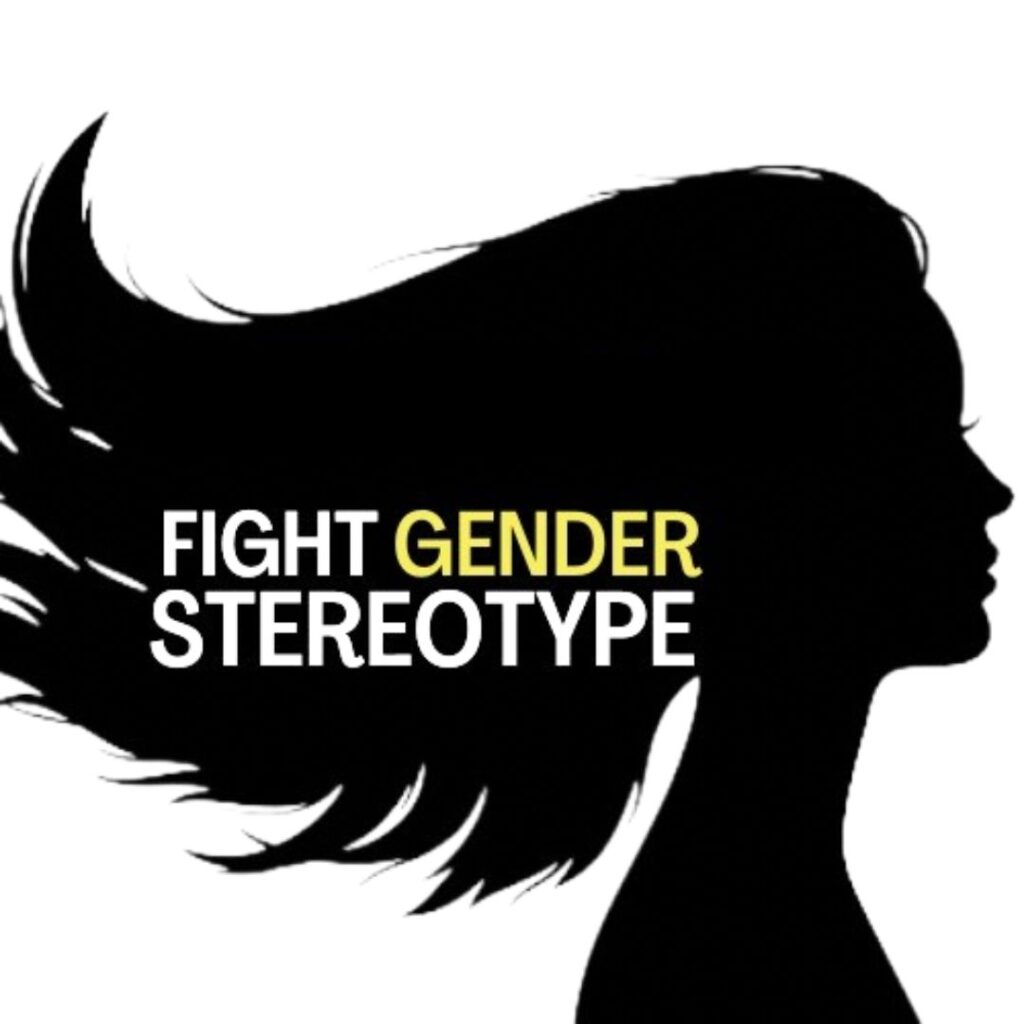

Funded by the European Union. Views and opinions expressed are however those of the author(s) only and do not necessarily reflect those of the European Union or the European Education and Culture Executive Agency (EACEA). Neither the European Union nor EACEA can be held responsible for them.
FI.r.St. – FIght gendeR Stereotype
2022-1-IT02-KA210-ADU-000080880
Programme: Erasmus+
Action Type: KA210-ADU – Small-scale partnerships in adult education
Start: 01/12/2022 – End: 01/06/2024
Project Reference: 2022-1-IT02-KA210-ADU-000080880
EU Grant: 60.000 EUR
IL PROGETTO
Gli obiettivi del progetto sono:
Ob. Generale: Creare e rafforzare una rete di organizzazioni no-profit che lottano per combattere lo stereotipo di genere attraverso la comunicazione visiva dell’arte della pittura, della grafica visiva e della fotografia.
Ob. Specifico: Rompere lo stereotipo femminile con particolare riferimento alla maternità e alla gravidanza; Definire strategie, strumenti e canali di comunicazione per promuovere le attività di rete e le attività sviluppate; Scambiare esperienze e buone pratiche.
Oltre alla gestione del progetto, FIRST sarà implementato con le seguenti attività:
-Incontro iniziale -Sondaggi-Attività di formazione – Comunicazione visiva combinata con l’educazione non formale – Attività di ripresa e pittura per rappresentare lo stereotipo -Webinar internazionale sugli stereotipi di genere -Visita Studio – Incontro di chiusura con mostra d’arte finale
Risultati:
- Coinvolgimento della comunità e di altre donne e madri attraverso il sondaggio internazionale.
- Manuale di tecniche di comunicazione visiva combinato con la metodologia non formale come mezzo di apprendimento.
- Elenco e narrazione visiva degli stereotipi più comuni sulla maternità
- Sito web del progetto
- Incontro conclusivo con una mostra artistica sul lavoro svolto.
ABOUT THE PROJECT
The project will be an Erasmus Plus KA210-ADULT – Small-scale partnerships according to Erasmus Plus Programme rules.
Ob. General: Create and strengthen a network of non-profit organizations that fight to combat the gender stereotype through the visual communication of the art of painting, visual graphics, and photography.
Ob. Specific:
- Break the female stereotype with particular reference to motherhood and pregnancy.
- To define communication strategies, tools, and channels to promote networking activities and the activities developed
- Exchange experiences and best practices.
In addition to project management, FIRST will be implemented with the following activities:
-kick-off meeting -Survey -Training activities – visual communication combined with non-formal education – Shooting and painting activities to represent the stereotype – international webinar on gender stereotypes -Visit Study – Closing Meeting with final Art Exhibition.
Results:
- Community involvement and other women and mothers through the international survey
- Manual of visual communication techniques combined with non-formal methodology as a means of learning
- List and visual narration of the most common stereotypes on motherhood
- Project website
- Closing Meeting with an artistic exhibition on the work done.
PARTNERSHIP
ENTE CAPOFILA: EURO MAMME – ITALIA
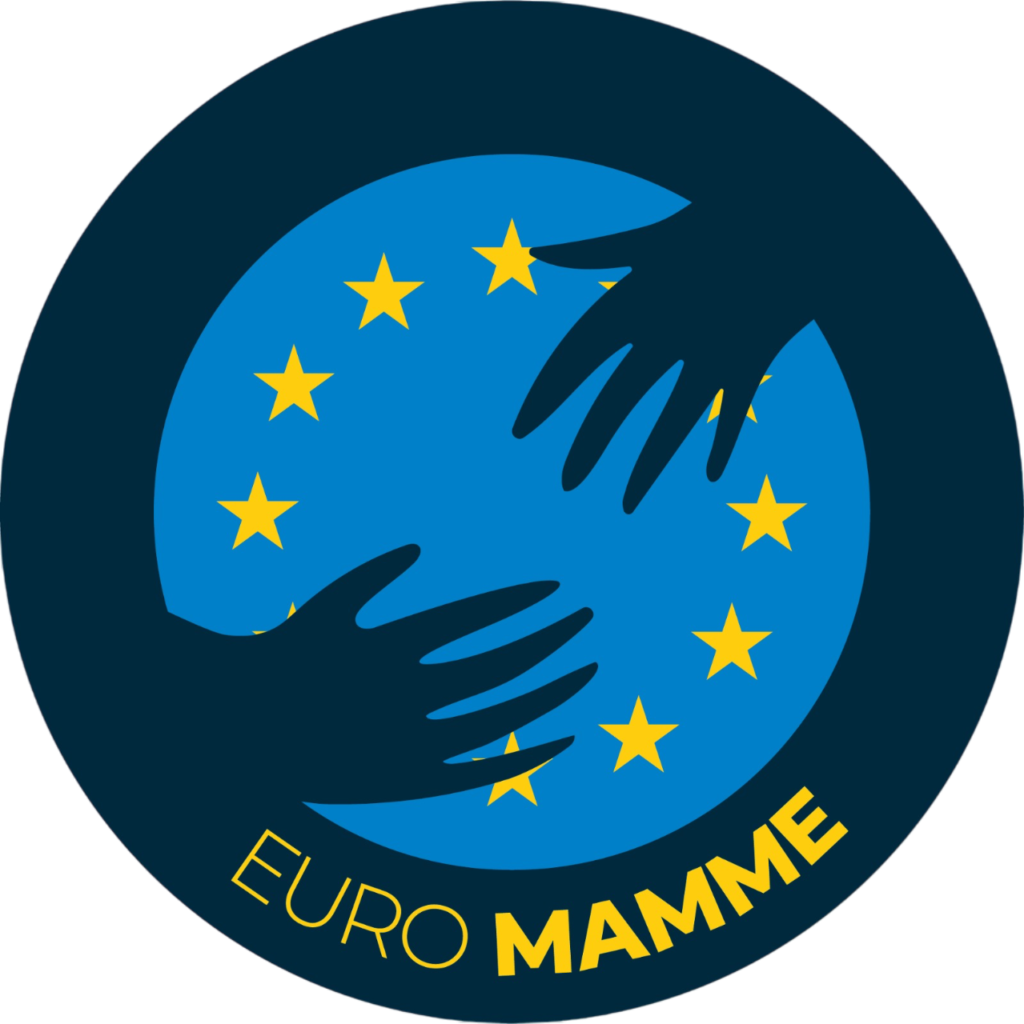
L’Associazione è un Ente non commerciale e senza scopo di lucro, che opera con finalità civiche, solidaristiche e di utilità sociale, anche al fine di sostenere l’autonoma iniziativa dei cittadini che concorrono, anche in forma associata, a perseguire il bene comune, ad elevare i livelli di cittadinanza attiva, di coesione e protezione sociale, favorendo la partecipazione, l’inclusione e il pieno sviluppo della persona, a valorizzare il potenziale di crescita e di occupazione lavorativa.
Gli obiettivi dell’associazione:
a. Rappresentare le mamme presenti su tutto il territorio europeo, creando un network tra esse
attraverso la promozione e valorizzazione dei valori europei;
b. Dare supporto alle mamme favorendo il loro processo di sviluppo professionale e la loro crescita
personale, nello specifico supportare il loro inserimento/reinserimento nel mondo del lavoro a seguito della gravidanza, del parto e del periodo di puerperio;
c. Favorire per le mamme:
– il riconoscimento e lo sviluppo professionale;
– la conoscenza del mercato del lavoro;
– lo scambio di informazioni e di buone pratiche tra i soci, promuovendo e consolidando lo spirito di comprensione ed associativo, coinvolgendo attivamente la componente maschile dell’associazione con l’obiettivo di una educazione alla logica delle pari opportunità e del supporto verso la donna/madre;
– un miglior bilanciamento tra la vita professionale e la vita privata/familiare;
ENGLISH VERSION
The Association is a non-commercial and non-profit organization that operates for civic, solidarity, and social utility purposes, also aiming to support the independent initiatives of citizens who contribute, even in an associated form, to pursuing the common good, raising levels of active citizenship, cohesion, and social protection, promoting participation, inclusion, and the full development of the individual, and enhancing growth potential and employment.
The objectives of the association are as follows:
a. Representing mothers across the entire European territory by creating a network among them, promoting and valuing European values.
b. Providing support to mothers to facilitate their professional development and personal growth, specifically assisting their entry/reentry into the workforce following pregnancy, childbirth, and the postpartum period.
c. Promoting the following for mothers:
- Recognition and professional development.
- Knowledge of the labor market.
- Exchange of information and best practices among members, promoting and strengthening the spirit of understanding and association, actively involving the male component of the association with the goal of educating towards equal opportunities and providing support to women/mothers.
- A better balance between professional life and private/family life.
ASSOCIATION INTERNATIONAL INITIATIVES FOR COOPERATION – BULGARIA
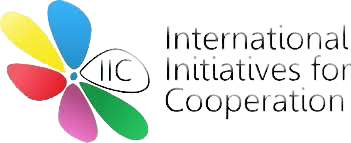
L’Associazione “International Initiatives for Cooperation” (IIC) è un’organizzazione non governativa senza scopo di lucro fondata nel 2003. L’associazione opera sul territorio della Repubblica di Bulgaria, con sede nella città di Razlog.
La missione dell’associazione è quella di sviluppare e potenziare le capacità della società civile bulgara attraverso l’ideazione e l’implementazione di diversi progetti, attività e iniziative volte a promuovere lo sviluppo culturale, sociale ed economico del Paese e, rispettivamente, dei comuni del suo territorio.
ENGLISCH VERSION
Association “International Initiatives for Cooperation” (IIC) is a non-profit, non-governmental organisation established in 2003. The association is working on the territory of the Republic of Bulgaria, having its head office in the town of Razlog.
The mission of the association is to develop and build up the capacity of the civil society in Bulgaria through designing and implementing different projects, activities and initiatives aimed at promoting the cultural, social and economical development of the country and respectively of the municipalities on its territory.
KULTUR & ART – GERMANIA
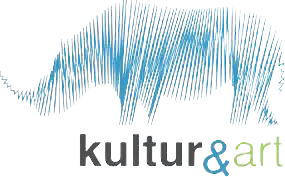
La Kultur & Art Initiative e.V. (KAI) è stata fondata nel 2002 ed è un’organizzazione interculturale e intergenerazionale senza scopo di lucro composta da membri provenienti da diverse nazioni, fasce d’età e con diversi background professionali, che da molti anni hanno esperienze professionali nel campo dei giovani, dei rifugiati, della migrazione, dell’educazione non formale (NFE) e della produzione mediatica.
Sviluppa e implementa progetti artistici e culturali.
L’obiettivo di questa organizzazione è realizzare progetti con persone di diverse origini etniche. Il suo concetto si basa sui contenuti dell’integrazione sociale e interculturale.
L’organizzazione vuole contrastare il consumo culturale passivo utilizzando un lavoro culturale attivo. Per questo motivo offrono ai partecipanti opportunità creative e progettuali, oltre a laboratori di educazione ai media e scambi giovanili internazionali. In questo contesto, organizzano progetti “Erasmus+” (E+) e noi lavoriamo nei settori delle politiche giovanili e dello sviluppo del lavoro giovanile (YW).
ENGLISH VERSION
The Kultur & Art Initiative e.V. (KAI) was established in 2002 and is an intercultural and intergenerational non-profit organization composed of members from different nations, age groups with different professional backgrounds who have got professional experiences in youth, refugees, migration, non-formal education (NFE) and media production for many years.
It develops and implements art-based and cultural projects.
The aim of this organisation is to realize projects with people of different ethnic origins. Its concept is based on the contents of social and intercultural integration.
They want to work against passive cultural consumption by using active cultural work. This is why they offer creative and project-orientated opportunities to their participants in addition to media educational workshops and international youth exchanges. In this context, they organise “Erasmus+” (E+) projects and we work in the fields of youth policy and youth work (YW) development.
KUKDER – TURCHIA
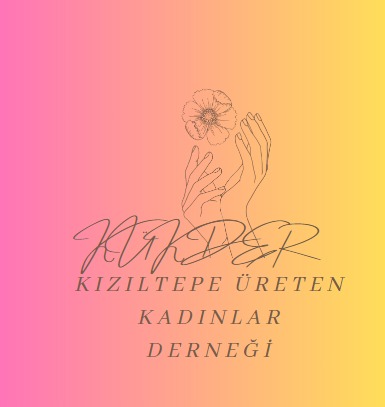
KICK-OFF MEETING A ROMA
Il 5 marzo 2023 si è tenuto il kick off meeting che ha dato ufficialmente inizio alle attività del progetto FIght gendeR Stereotype. La riunione si è tenuta a Roma (Italia) ed è stata ospitata da EUROMAMME. La riunione è stata la occasione per condividere la mappatura del progetto, specificando i singoli obiettivi e le singole attività da svolgere, chiarimenti di qualsiasi dubbio. Durante il meeting abbiamo definito le attività, il loro contenuto e i tempi di ogni meeting. Oltre il coinvolgimento dello staff di EUROMAMME, il meeting ha visto la partecipazione di ICC, proveniente dalla Bulgaria, e di Kultur&Art, proveniente della Germania. FIght gendeR Stereotype nasce per creare una rete di organizzazioni no-profit che lottano per combattere lo stereotipo di genere attraverso la comunicazione visiva dell’arte della pittura, della grafica visiva e della fotografia.
Dopo questo incontro, le associazioni stanno già lavorando all’organizzazione dei prossimi eventi internazionali, che avranno come seconda destinazione la Germania.
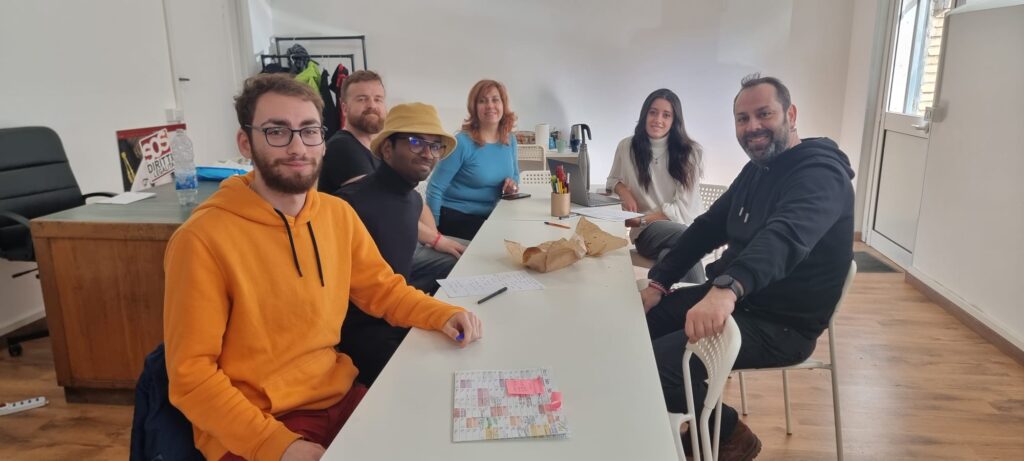
KICK-OFF MEETING IN ROME
On 5th March 2023, the kick-off meeting was held to officially start the activities of the FIght gendeR Stereotype project. The meeting was held in Rome (Italy) and was hosted by EUROMAMME. The meeting was an opportunity to share the mapping of the project, specifying the individual objectives and activities to be carried out, and clarifying any doubts. During the meeting we defined the activities, their content and the timing of each meeting. In addition to the involvement of EUROMAMME staff, the meeting was also attended by ICC from Bulgaria and Kultur&Art from Germany. FIght gendeR Stereotype main objectives is to create a strengthen a network of non-profit organisations that fight to combat the gender stereotype through the visual communication of the art of painting, visual graphics and photography.
After this meeting being held, the associations are already working on the organisation of the next international events, having as second destination Germany.
Training course a Detmold, Germania
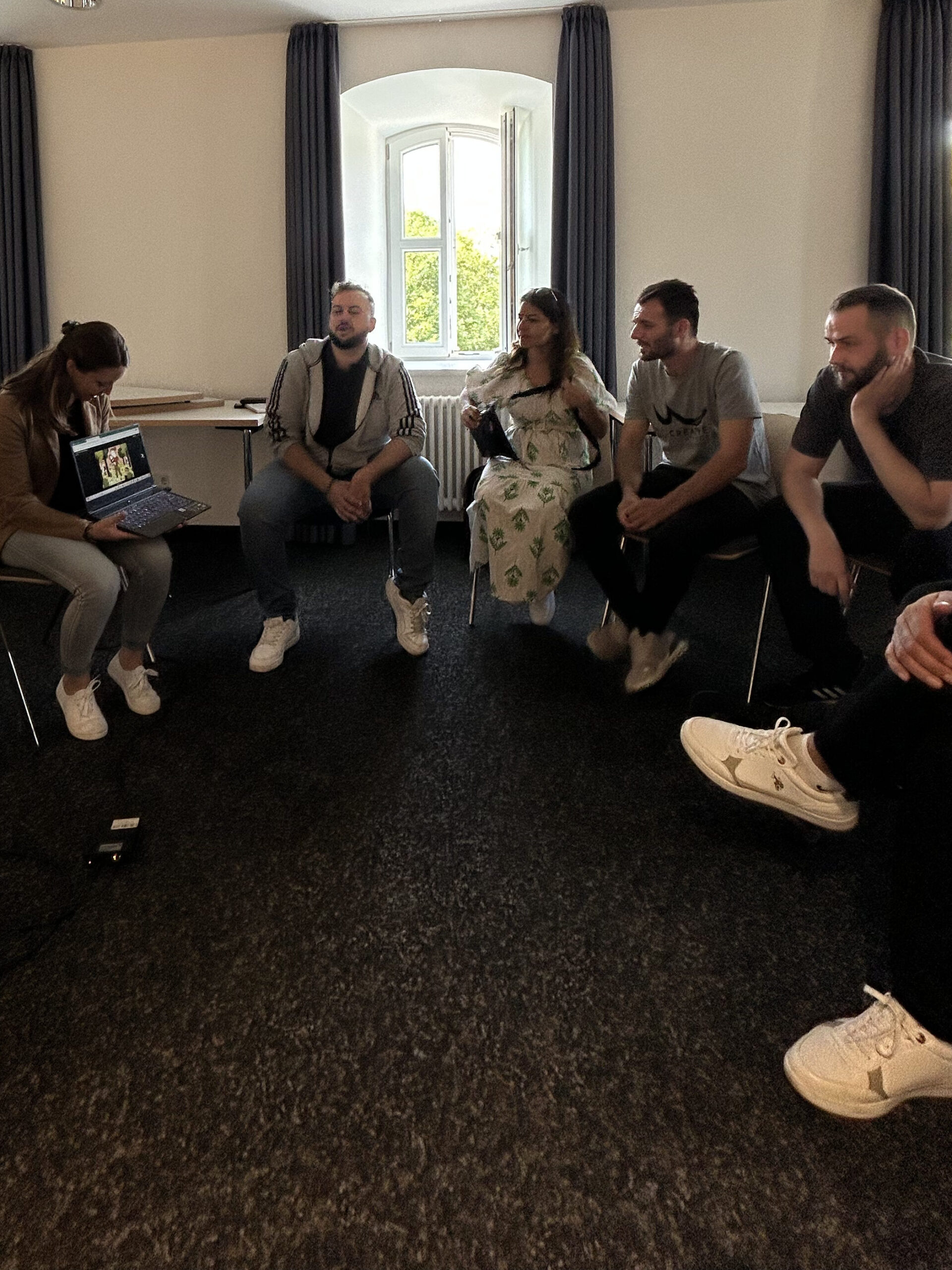
Il 26 agosto 2023 si è svolto a Detmold, Germania, il secondo meeting internazionale del progetto FIGHT GENDER STEREOTYPE (FIRST), progetto finanziato dalla commissione europea nelle more del programma erasmus plus. Euromamme è leading partner di questo progetto che si concentra sulla lotta agli stereotipi femminili, con un focus particolare agli stereotipi sulla gravidanza e sulla maternità.
Durante questo primo incontro i partecipanti inviati dai nostri partners (kultur und Art – Germania, Kukder – Turchia e IIC – Bulgaria) si sono concentrati sull’individuazione e sull’analisi degli stereotipi legati a gravidanza e maternità. È stato un momento speciale dedicato allo sviluppo di strategie di comunicazione visiva e all’educazione non formale per combattere gli stereotipi di genere, in particolare quelli legati alla maternità. Durante questa giornata sono state organizzate attività di conoscenza reciproca, lavoro di gruppo basato su risultati di sondaggi, divisione dei compiti in base alle passioni e alle competenze, e valutazioni giornaliere per misurare il progresso. L’intero incontro ha trasmesso un forte senso di affetto e dedizione per affrontare questioni importanti. Come Euromamme siamo felici e soddisfatti dall’andamento e dai risultati di questo meeting e non vediamo l’ora di passare al prossimo step progettuale.
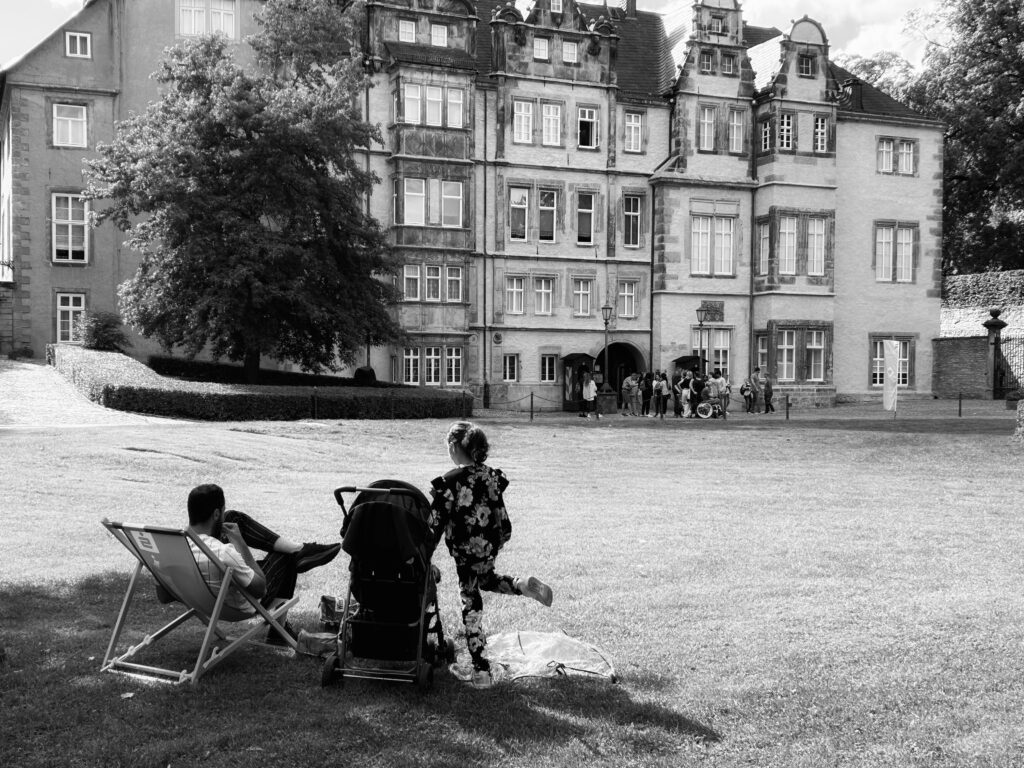
Training course in Detmold, Germany
On August 26, 2023, the second international meeting of the FIGHT GENDER STEREOTYPE (FIRST) project took place in Detmold, Germany. This project is funded by the European Commission under the Erasmus Plus program, and Euromamme is the leading partner. The project’s main focus is combatting female stereotypes, with a particular emphasis on stereotypes related to pregnancy and motherhood.
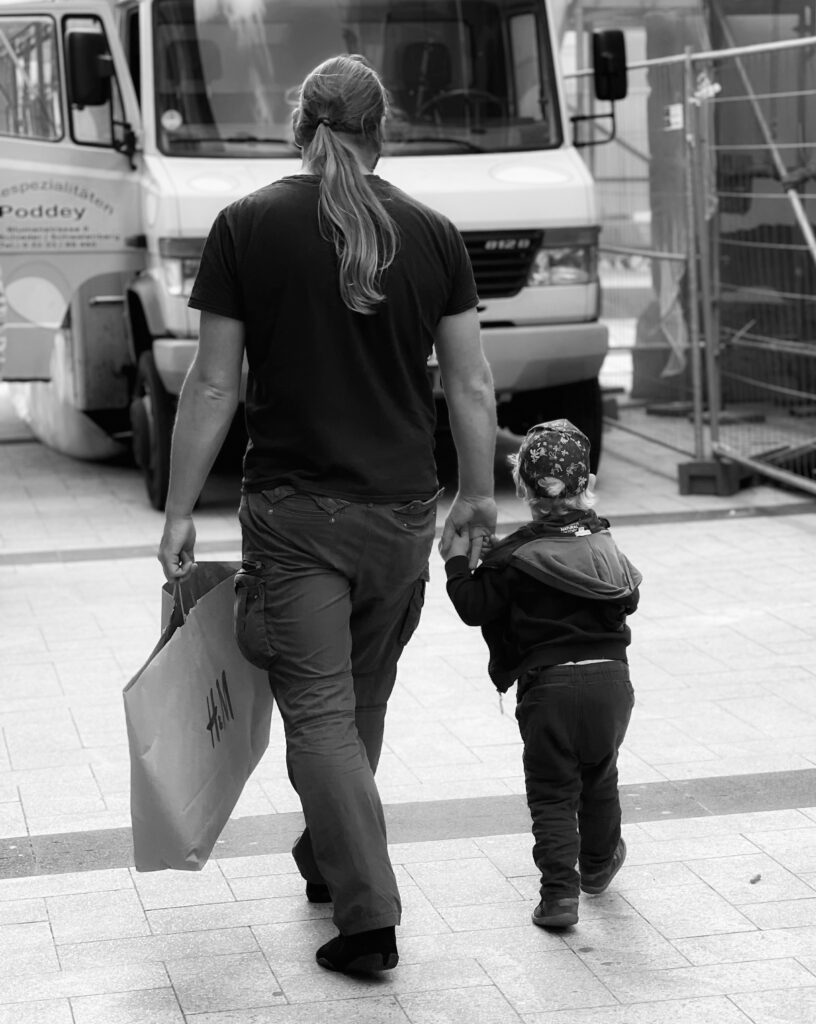
The project’s objective is to establish a network of non-profit organizations capable of combating female stereotypes through visual and artistic communication, including painting, graphic arts, and photography.
During this first meeting, participants sent by our partners (kultur und Art – Germany, Kukder – Turkey and IIC – Bulgaria) focused on identifying and analysing stereotypes related to pregnancy and motherhood. It was a special moment dedicated to the development of visual communication strategies and non-formal education to combat gender stereotypes, particularly those related to motherhood. During this day, activities were organised to get to know each other, group work based on survey results, division of tasks according to passions and skills, and daily evaluations to measure progress. The whole meeting conveyed a strong sense of affection and dedication to addressing important issues. As Euromamme we are happy and satisfied with the progress and results of this meeting and look forward to the next project step.
SONDAGGIO/SURVEY “FIght GendeR STereotypes”
Dedicaci 3 minuti e aiutaci a combattere gli stereotipi di genere!
Give us 3 minutes and help us fight gender stereotypes!
VISITA STUDIO A ROMA
La giornata del 25 gennaio 2024 è stata l’occasione per riunire i nostri partner della Germania (Kultur und Art), Turchia (KUKDER) e Bulgaria (IIC) a Roma, luogo scelto per la visita studio per essere precisamente una città piena d’arte e cultura.

Con un totale di 12 partecipanti, la giornata è iniziata con la presentazione di ogni partecipante. L’attività scelta è stata presentarsi attraverso una imagine che potesse raccontare una storia su di loro, in modo di fargli entrare in uno dei temi del progetto, ossia la comunicazione non verbale.
A continuazione, si è fatta una breve presentazione del progetto e delle attività locali. A questo punto tutti i partecipanti hanno ricevuto una brochure con tutta l’informazione sul progetto e l’attività menzionate prima. Dopodiché è iniziata la visita studio con la preziosa collaborazione di “Marvels of Rome”, una organizzazione di donne che ha messo la loro esperienza nel campo della storia di Roma e le sue donne.

Così, si è iniziato una visita guidata chiamata “Donne di Roma” con diverse tappe facendo riferimento a figure femminile che hanno avuto (e che ancora hanno) un ruolo importante nella città e anche a livello sia nazionale che internazionale. La visita è iniziata alla Colonna di Traiano, dove abbiamo parlato della figura di Platina, la moglie di Traiano. Oltre tappe sono state la casa di Michelangelo e il suo rapporto con Vittoria Colonna, la prima poetisa italiana a pubblicare un libro di poesia. Mentre salivamo le scale del altare de la Patria, si è fatto riferimento al Palazzo Bonaparte e alla figura di sua mamma, Letizia Ramolino Madame Mere Napoleon. Altre donne nominate durante la visita sono state Virginia Raggi, prima donna sindaco di Roma, Ottavia, Settimia Spizzichino, sopravvivente di Auschwitz, Beatrice Cenci e altre tante figure rappresentate di Roma.

La visita studio è finita al Pantheon dove si è fatto riferimento a tante altre figure rappresentate della storia di Roma e con un grande impatto nella società. Alcuni dei nomi sono stati: la Regina Margherita, prima refina d’Italia e chi inaugurò il primo congresso nazionale delle donne italiane per parlare delle condizione lavorative delle donne, il loro diritto alla educazione, alla salute e alla politica; figure istituzionali come Nilde Iotti, Maria Elisabetta Alberti Casellati e Giorgia Meloni; Oriana Fallaci, una coraggiosa giornalista che diede voce alle donne durante la seconda guerra mondiale, e altre tante.
Grazie alle conoscenze dello staff di Marvels of Rome i partecipanti hanno avuto l’opportunità di ricevere prospettive preziose, migliorando la loro comprensione del tessuto culturale in Italia, soprattutto a Roma, e il ruolo delle donne. L’obiettivo è stato non solo promuovere la consapevolezza, ma anche creare un ambiente inclusivo che favorisca una comprensione più approfondita della complessità legata alla maternità e alla gravidanza. Dopo questa visita arricchente, i partecipanti hanno avuto il compito di immortalare quanto appreso durante la visita culturale in modo non verbale (attraverso la fotografia, il disegno, la pittura, ecc.). Tutto il grande lavoro svolto da Wanders of Rome sarebbe servito da ispirazione per trasmettere le conoscenze acquisite.
A continuazione potete trovare il contenuto della visita studio con imagini delle figure femminile:

Il nostro percorso è proseguito allo Spazio “Europa David Sassoli”, dove ci è stato presentato l’eccezionale lavoro dell’associazione culturale “Cattive Ragazze“. Questa organizzazione, dedicata alla creazione di uno spazio sicuro per le donne, ha lasciato un’impressione indelebile. La presentazione da parte dell’associazione ha offerto un’opportunità unica per approfondire la comprensione degli stereotipi e della discriminazione di genere. L’organizzazione ha messo in luce i problemi legati a tali stereotipi, educando i partecipanti sulla necessità di superare tali barriere per creare una società più equa e inclusiva. Attraverso la condivisione del formulario elaborato durante l’evento a Detmold ci ha permesso di avere una vista più ampia e concreta della situazione degli stereotipi sul territorio locale.
L’interazione con l’associazione “Marvels of Rome” e “Cattive Ragazze” hanno sicuramente contribuito a migliorare la qualità delle associazioni partner coinvolte nel percorso. Non solo hanno fornito una ispirazione derivante dall’impatto sociale che hanno raggiunto ma hanno pure apportato nuove prospettive, incoraggiando un miglioramento continuo all’interno delle organizzazioni coinvolte. Grazie agli incontri con “Marvels of Rome” e “Cattive Ragazze” l’associazioni partner e i partecipanti sono state ispirate con una visione più ampia e impegnativa per il loro percorso formativo, promuovendo una partecipazione attiva nella creazione di società più giuste ed inclusive. Dopo gli incontri e come ultima task, i partecipanti hanno mostrato il loro lavoro d’arte non visuale e hanno condiviso il motivo delle loro scelte. Tutto questo lavoro sarà poi esibito alla mostra finale che si terrà a Marzo in Bulgaria.

L’essenza di Roma ha decisamente attecchito la nostra visita, svolgendo un ruolo cruciale degli obiettivi generali del progetto. La partecipazione a questo evento non solo ha offerto l’opportunità di acquisite nuove prospettive e aumenta la consapevolezza, ma ha anche rappresentato un passo avanti nel raggiungimento di un ulteriore obiettivo: la definizione di strategie di comunicazione europea. Alla fine della sessione allo spazio “Europa experience” abbiamo dedicato tempo a studiare e sviluppare approcci efficaci, identificando strumenti e canali mirati per promuovere le attività prodotte e facilitare il networking. Tutto questo lavoro sarà plasmato sulle linee guide previste da progetto. Ci teniamo a ringraziare di cuore tutti coloro che hanno contribuito a rendere possibile questa esperienza trasformativa. La sinergia tra l’esplorazione della città, la definizione di strategie di comunicazione europea e la sfida agli stereotipi femminili è stata resa possibile grazie al contributo essenziale di “Marvels of Rome” e “Cattive Ragazze”, così come di tutte le associazioni partner. La nostra esperienza a Roma si è rivelata completa e significativa, aprendo nuove prospettive e promuovendo cambiamenti positivi, e questo è stato reso possibile grazie all’impegno e alla collaborazione di ognuno di loro. La loro dedizione e supporto hanno fatto la differenza e non vediamo l’ora di condividere i risultati con tutta la comunità europea.
STUDY VISIT IN ROME
The day of 25 January 2024 was an opportunity to bring together our partners from Germany (Kultur und Art), Turkey (KUKDER) and Bulgaria (IIC) in Rome, a place chosen for the study visit for being precisely a city full of art and culture.

With a total of 12 participants, the day began with the presentation of each participant.The chosen activity was to introduce themselves through an image that could tell a story about them, so that they could enter into one of the themes of the project, namely non-verbal communication. Following this, there was a brief presentation of the project and local activities. At this point, all participants received a brochure with all the information about the project and the activity mentioned earlier.
After that, the study tour began with the valuable collaboration of ‘Marvelsof Rome‘, a women’s organisation that brought their expertise in the field of the history of Rome and its women. Thus, we began a guided tour called ‘Women of Rome’ with several maps referring to female figures who have had (and still have) an important role in the city and also nationally and internationally. The tour started at the Column of Trajan, where we talked about the figure of Platina, the wife of Trajan.

Other stops included Michelangelo’s house and his relationship with Vittoria Colonna, the first Italian poetess to publish a book of poetry. As we climbed the stairs of the Patria altar, reference was made to the Bonaparte Palace and the figure of his mother, Letizia Ramolino Madame Mere Napoleon. Other women mentioned during the visit were Virginia Raggi, first woman mayor of Rome, Ottavia, Settimia Spizzichino, survivor of Auschwitz, Beatrice Cenci and many other figures represented in Rome. The study tour ended at the Pantheon where reference was made to many other figures represented in the history of Rome and with a great impact on society. Some of the names were: Queen Margherita, the first refina of Italy and the one who inaugurated the first national congress of Italian women to talk about the working conditions of women, their right to education, health and politics; institutional figures such as Nilde Iotti, Maria Elisabetta Alberti Casellati and Giorgia Meloni; Oriana Fallaci, a courageous journalist who gave voice to women during the Second World War, and many others. Thanks to the knowledge of Marvels of Rome staff, participants had the opportunity to receive valuable perspectives, enhancing their understanding of the cultural fabric in Italy, especially in Rome, and the role of women. The goal was not only to promote awareness, but also to create an inclusive environment that fosters a deeper understanding of the complexities of motherhood and pregnancy.

After this enriching visit, the participants were given the task of immortalising what they had learnt during the cultural visit in a non-verbal way (through photography, drawing, painting, etc.). All the great work done by Wanders of Rome would serve as inspiration to pass on the knowledge they had acquired.
Our visit continued to the ‘Europa David Sassoli‘ space, where we were introduced to the exceptional work of the cultural association ‘Cattive ragazze‘. This organisation, dedicated to creating a safe space for women, left an indelible impression. The presentation by the association offered a unique opportunity to deepen the understanding of gender stereotypes and discrimination.

The organisation highlighted the problems associated with such stereotypes, educating participants on the need to overcome these barriers to create a more equal and inclusive society. Sharing the form developed during the event in Detmold gave us a broader and more concrete view of the situation of stereotypes in the local area. The interaction with the association ‘Marvels of Rome’ and ‘Cattive Ragazze’ certainly contributed to improving the quality of the partner organisations involved in the course. Thanks to the meetings with “Marvels of Rome” and “Cattive Ragazze”, the partner associations and participants were inspired with a broader and more challenging vision for their training pathway, promoting active participation in the creation of fairer and more inclusive societies.
All of this work will be exhibited at the final exhibition to be held in March in Bulgaria.The essence of Rome definitely resonated with our visit, playing a crucial role in the overall goals of the project. Participation in this event not only offered the opportunity to gain new perspectives and raise awareness, but also represented a step forward in achieving a further goal: the definition of European communication strategies. At the end of the session in the ‘Europa experience’ area, we devoted time to researching and developing effective approaches, identifying targeted tools and channels to promote the activities produced and facilitate networking.

All this work will be shaped by the project guidelines. We would like to sincerely thank all those who helped make this transformative experience possible. The synergy between exploring the city, defining European communication strategies and challenging female stereotypes was made possible thanks to the essential contribution of ‘Marvels of Rome’ and ‘Cattive Ragazze’, as well as all the partner associations. Our experience in Rome proved to be comprehensive and meaningful, opening new perspectives and promoting positive changes, and this was made possible thanks to the commitment and cooperation of each of them. Their dedication and support made the difference, and we look forward to sharing the results with the entire European community.
LEGGI L’ARTICOLO SUL BLOG DI EURO MAMME
OUR MANUAL OF VISUAL COMMUNICATION TECHNIQUES: CHECK THEM OUT
CLOSING MEETING A BANSKO, BULGARIA
Sabato 16 marzo, due partecipanti di Euro Mamme (Italia), IIC (Bulgaria), Kultur und Art (Germania) e KUKDER (Turchia) si sono incontrati a Bansko, in Bulgaria, per la riunione di chiusura del progetto. Durante l’incontro, lo staff del partenariato ha parlato dei risultati del progetto e della sua sostenibilità futura.
Dopo aver approfondito l’argomento attraverso una breve presentazione delle immagini stereotipate sulla maternità presenti nella società e averle confrontate con le reali prospettive sulla maternità, abbiamo discusso le nostre prospettive ed esperienze personali sull’argomento.
Abbiamo parlato dell’importanza del progetto e di come lo scambio delle attuali situazioni di disuguaglianza di genere possa giovare alla situazione generale. Abbiamo raccolto queste impressioni attraverso una nuvola di parole sulla maternità che ha elaborato ulteriormente le nostre prospettive.
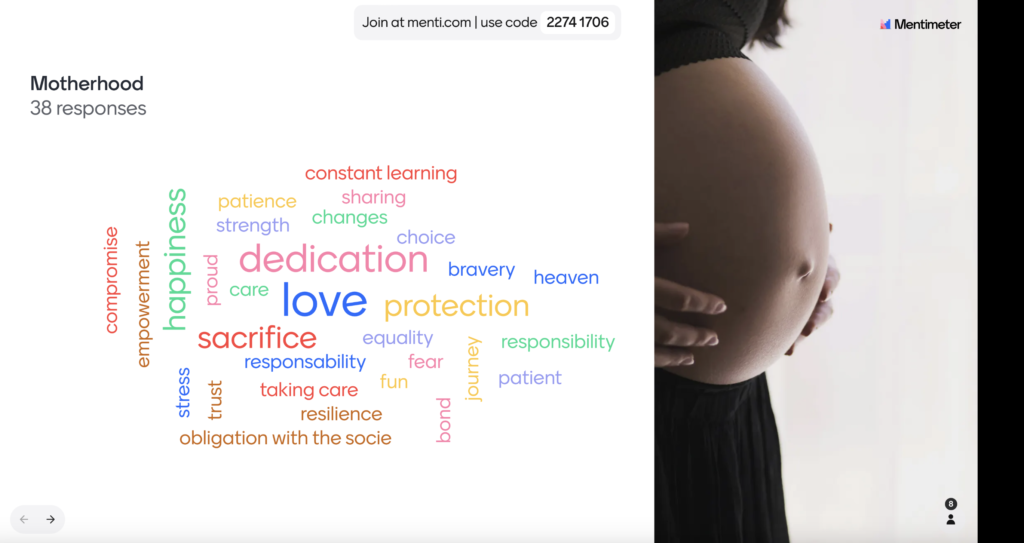
Oltre alle attribuzioni positive come la forza, l’amore e la resilienza, abbiamo anche condiviso il nostro punto di vista sulle difficoltà e gli aspetti negativi della maternità, come la paura e il giudizio.

Dopo aver avuto la possibilità di condividere le prospettive individuali, abbiamo presentato i risultati e le realizzazioni del progetto. Abbiamo ripercorso il primo workshop a Detmold, in Germania, dove abbiamo discusso degli stereotipi nel Paese di ciascun partner, e poi abbiamo parlato della nostra visita di studio a Roma, in Italia, dove abbiamo avuto la possibilità di fare un tour sulle figure femminili della storia di Roma, la Città Eterna. Abbiamo anche presentato un booklet e un manuale che abbiamo preparato con la collaborazione di ogni partner.Il booklet (che potete vedere sopra) contiene i risultati dei partecipanti sotto forma di immagini, tutte le organizzazioni partecipanti, gli obiettivi principali del progetto e una sintesi della visita guidata che si è svolta a Roma e che si è concentrata sulle donne influenti nella storia e nella presenza di Roma. Il manuale riguarda l’educazione non formale, la comunicazione non verbale attraverso l’arte, il ruolo dell’empatia nella lotta agli stereotipi e gli stereotipi più comuni sulla gravidanza e la maternità in generale e in ciascuno dei Paesi partecipanti. In questo modo, si riassumono i contenuti del progetto e la strategia della mostra.

Si è quindi passati alla presentazione della mostra fotografica. Prima di presentarla, ogni partecipante ha ricevuto un libretto che la partnership ha creato con tutte le attività del progetto e le foto della mostra.
Dopo aver presentato la mostra, tutti hanno avuto la possibilità di sperimentarla in prima persona prima di parlare degli stereotipi presentati che abbiamo messo in discussione attraverso le immagini e di confrontarli con gli stereotipi individuali che anche noi stessi potremmo aver avuto o affrontato in passato.
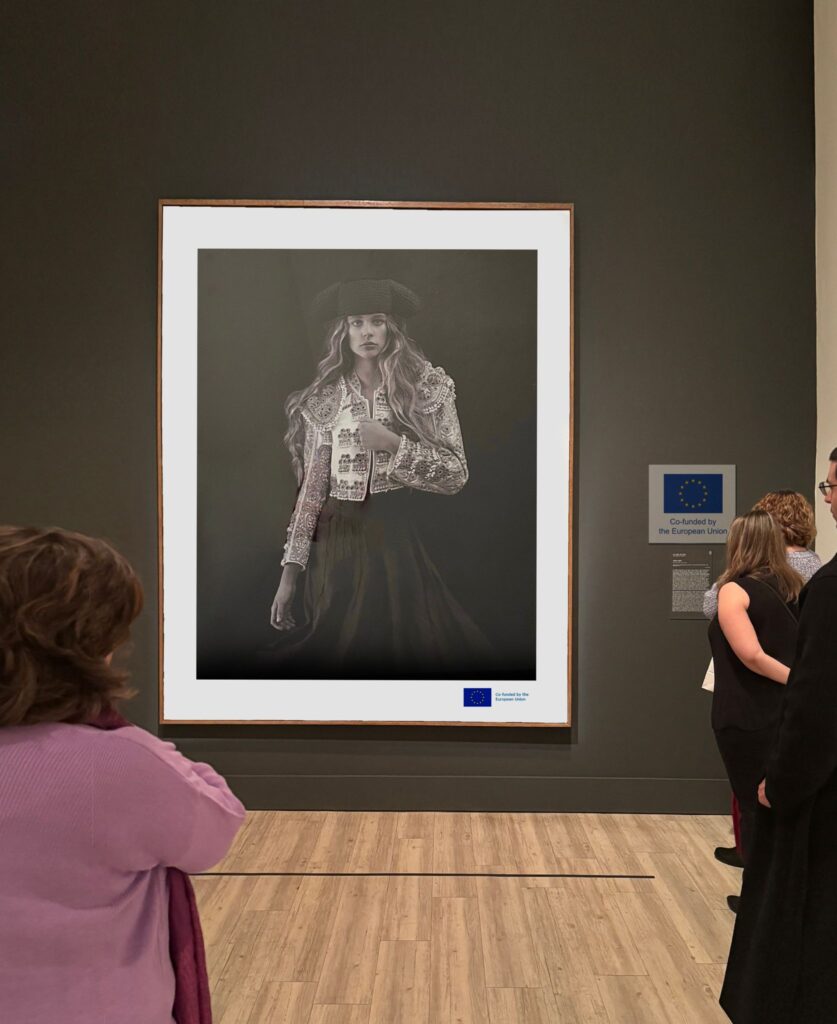
Dopo la discussione che ne è scaturita, abbiamo concluso l’incontro con una raccolta di idee per la cooperazione futura, al fine di garantire la sostenibilità del progetto e un impatto duraturo sulle nostre comunità. La maggior parte dei nostri piani ruotava intorno all’utilizzo delle tecniche apprese sulla comunicazione non formale e non verbale per avere un impatto. Abbiamo parlato della produzione di cortometraggi e di una possibile visita di studio nella Turchia orientale, dove molti collettivi di donne stanno lottando per l’uguaglianza di genere attraverso misure simili, come ci ha spiegato il nostro partner Kultur und Art.
Vorremmo cogliere l’occasione per ringraziare tutti i nostri partner e il loro staff, che hanno lavorato duramente durante l’intero processo del progetto e hanno contribuito con un ruolo cruciale in ogni attività del progetto.
CLOSING MEETING IN BANSKO, BULGARIA
On Saturday16th of March, two participants of Euro Mamme (Italy), IIC (Bulgaria), Kultur und Art (Germany) and KUKDER (Turkey) met in Bansko, Bulgaria, to have the closing meeting of the project. During the meeting, the staff the partnership talked about the project’s results and future sustainability of the project.
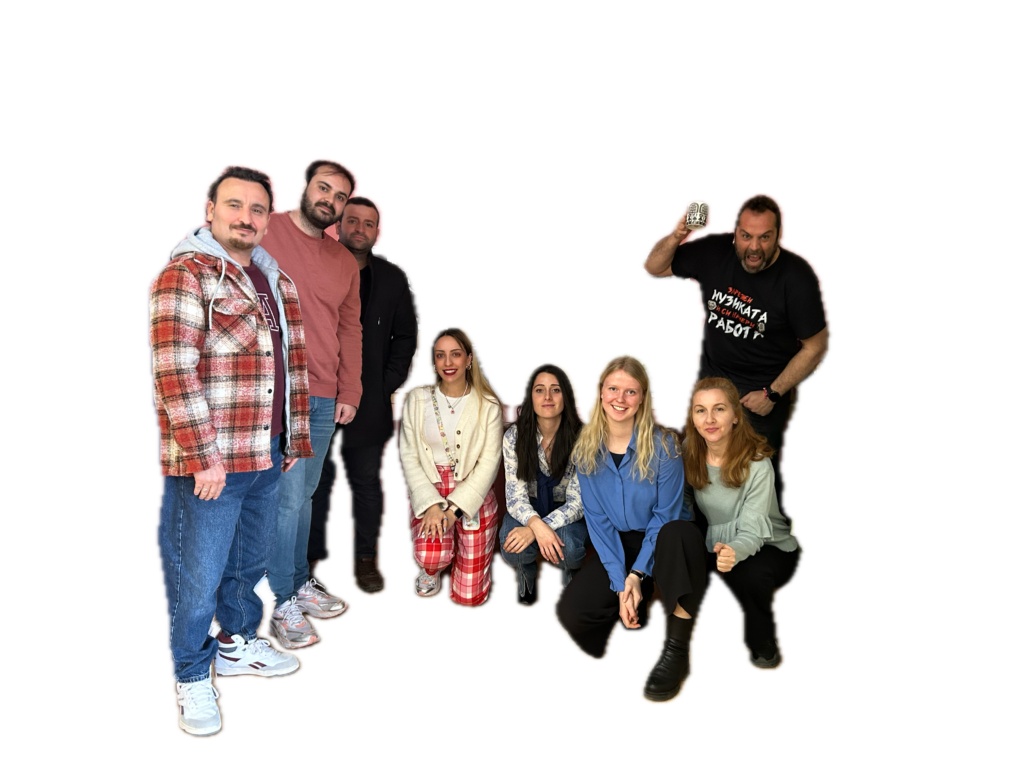
After getting into the topic through a short presentation of what stereotypical images about motherhood are present in society and comparing them with actual outlooks on motherhood, we discussed our perspectives and personal experiences on the topic. We talked about the importance of the project and how exchange of current situations regarding gender inequality can benefit the situation generally. We collected these impressions via a mentimeter word cloud on motherhood which further elaborated each of our perspectives.

Besides positive attributions such as strength, love and resilience we also shared our point of view on struggles and downsides of motherhood, such as fear and judgment.
After we had the chance to share individual perspectives: we presented the project’s results and outputs. We recapped the first workshop in Detmold, Germany, where we discussed about the stereotypes in each partner’s country, and then we talked about our study visit in Rome, Italy, where we had the chance to go on a tour about female figures of the history of Rome, the Eternal City. We also presented a booklet and a manual we prepared with the collaboration of each partner. The booklet (you can check it above) includes the participant’s output in form of pictures, all participating organizations, the project’s main objectives and a summary of the guided tour that took place in Rome and focused on influential women in Rome’s history and presence. The manual is on non-formal education, non- verbal communication through art, the role of empathy in combating stereotypes and the most common stereotypes on pregnancy and motherhood generally and in each of the participant’s countries. Hence, it sums up the project’s content and strategy of the exhibition.
We then moved over to the presentation of the photography exhibition. Before presenting it, each participant received a booklet that the partnership created with all the project activities and photos of the exhibition. After introducing the exhibition, everybody had the chance to experience it for themselves before talking about stereotypes presented that we challenged through the pictures and comparing these to individual stereotypes we also might have had ourselves or faced in the past.
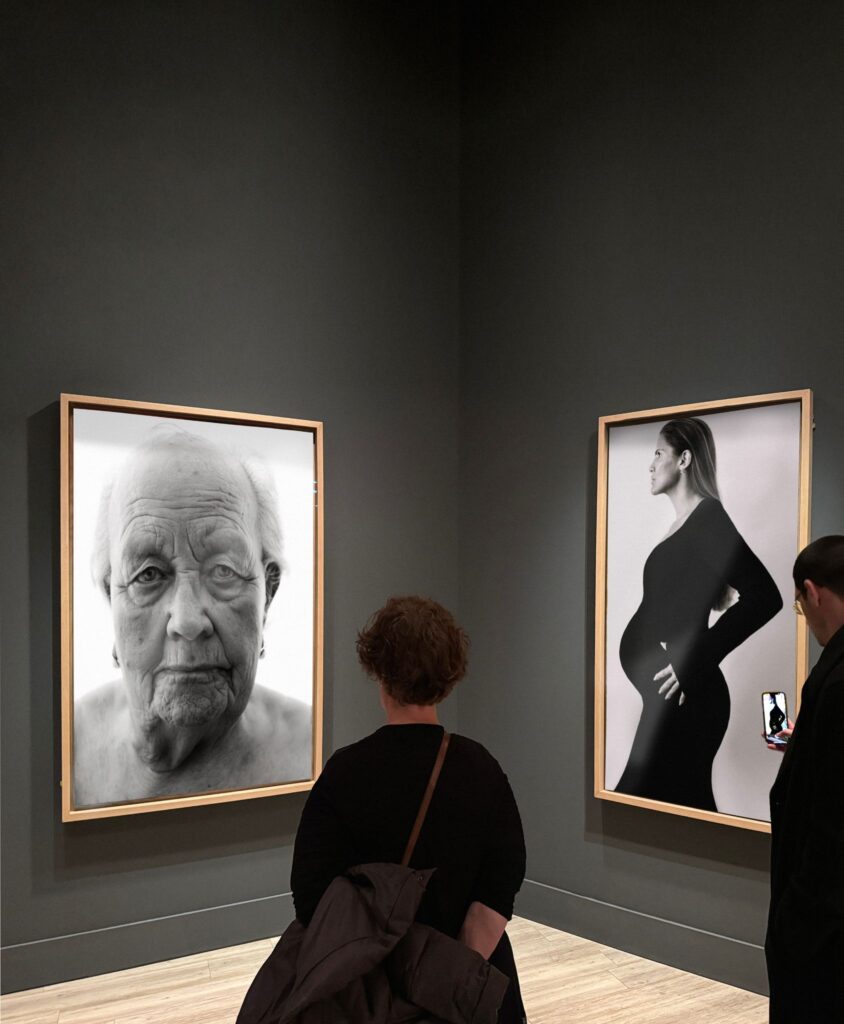
Following the resulting discussion we concluded our meeting with a collection of ideas for future cooperation in order to ensure sustainability of the project and an enduring impact on our communities. Most of our plans revolved around using the techniques we learned about non-formal non-verbal communication in order to make an impact. We talked about producing short movies and a possible study visit to east turkey, where many women collectives are fighting for gender equality through similar measurements, as our partner Kultur und Art explained.
We would like to take this opportunity to thank each of our partners and their staff, who worked so hard during the whole process of the project and contributed with a crucial role in each of the activities of the project.